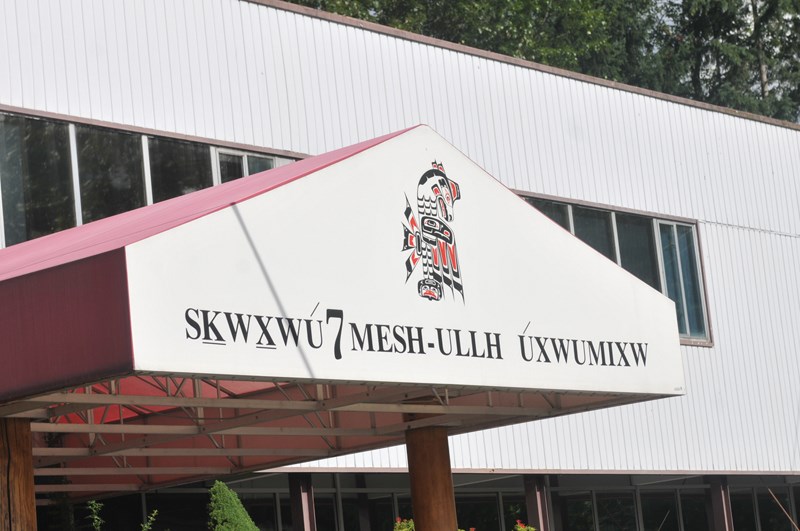Nineteen Squamish Nation members have tested positive for COVID-19 and that number is likely to grow, even as the community takes steps to stop the spread of the virus.
The nation announced Friday that all its offices have been closed for two weeks due to multiple positive COVID-19 cases among its members.
Three of those cases were among employees who worked in different departments of the Squamish Nation.
As of Tuesday morning, the nation had announced 19 confirmed cases, but was expecting to update those figures when more test results come back. Squamish Nation co-chair Kristen Rivers said Sunday that about 10 symptomatic people were still waiting for test results at that time. Other members of the nation have been getting tested if they think they may have been in contact with someone who has tested positive for COVID-19.
“Not to be alarmed if you see the number go up,” said Rivers in a Facebook live video for members. “It means that the people who have contracted the virus are doing their job and letting people know that they have been in contact with.”
People have been impacted by the outbreak in both North Shore and Squamish communities, said Squamish Nation councillor and spokesman Chris Lewis. He said as far as he is aware, those testing positive have ranged from younger adults to people in their 50s and 60s. He said he had not been told of any elders having contracted the virus.
The outbreak is believed to have started among members of one or two households X̱wemelch’stn (Capilano Reserve) but appeared to spread quickly. “Indigenous communities are more susceptible,” said Lewis. “We’re a close, tight-knit community. There are multiple families living in a household in some cases.”
Some Squamish Nation members were more critical, posting comments on social media that pointed to recent parties and large family gatherings they said had not respected pandemic protocols.
Lewis said he’s aware of those comments. “We’ve received multiple reports from members that there’s been social gatherings where it’s been reported that social distancing rules haven’t been adhered to,” he said. “We’re just focusing on the containment of the virus and outbreak in the community. And I think at the appropriate time, we will look into those individuals that have hosted parties and ... have a conversation amongst ourselves in terms of what should be done.”
Lewis said the outbreak has created some anxiety for community members.
“It’s no longer something that’s outside of our community. We’ve been quite fortunate up to now to not have a positive case,” he said.
But he said he’s also seen a lot of “resilience and support ... which is really heartening as a leader – to see how our community has rallied around this.”
The nation’s emergency response team is bringing care packages to families who need them, and will continue to bring food, medicine and supplies like masks and hand sanitizer to those who are sick or isolating.
There is also help if people who are living with relatives or couch surfing need accommodation to self-isolate.
Squamish Nation staff will continue to work from home while the office is closed, said Lewis.
The nation is encouraging everyone who is feeling unwell or may have had contact with a positive case of COVID-19 to get tested. Testing is available on the North Shore at the Urgent and Primary Care Centre on Esplanade and at a new testing site in the parking lot of Centennial Theatre on Lonsdale.
Lewis added in his video address to members on Monday that the community is being urged to keep their “bubbles” small to contain the spread of the virus.
The Squamish Nation outbreak is happening at a time when the number of cases has been rising in the Lower Mainland.
Dr. Bonnie Henry, the province’s medical health officer, said Monday about one-third of new cases are related to parties, clubs and other “exposure events,” about one-third are being transmitted among family members and one-third are from workplace and health care or long-term care exposure.



